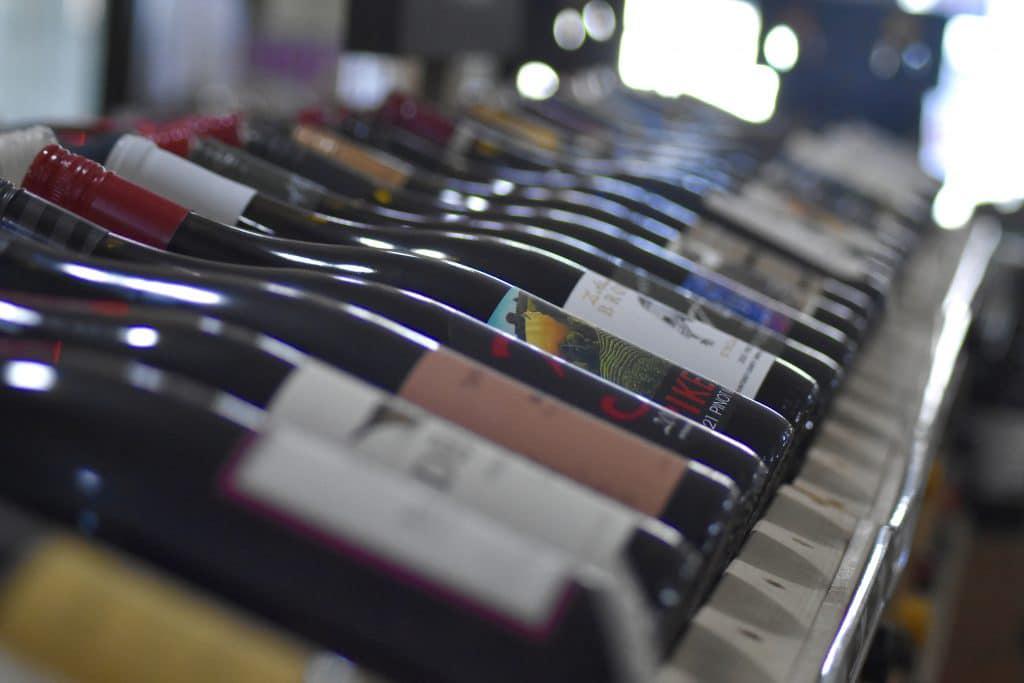‘The disadvantages are huge’: Summit County liquor store owners forecast challenge, but not disaster, amid grocery store wine sales

Summit County liquor store owners faced their first week competing with major grocery chains for wine sales after a new state law went into effect March 1 thanks to a voter-approved ballot initiative, which Coloradans passed by a slim margin of 50.6% in November. A majority of Summit County voters cast ballots against the measure by a 56% to 44% margin.
As business owners brace for challenges in their new reality, they’re banking on a slew of factors to give them an advantage.
“The reason that our craft beverage industry is so vibrant in the state of Colorado … is because of the independent liquor store,” said Chris Carran, who owns Locals Liquors in the town of Silverthorne and also serves as a council member for the town.
Carran, whose store has been operating for 17 years, is worried that chains like City Market and Safeway will have an unfair advantage. Those companies, Carran said, have more buying power than independent sellers when it comes to products and more luxury to “play with margins” when it comes to pricing.
“The disadvantages are huge,” Carran said.
A regional spokesperson for City Market did not respond to a request for comment.
Still, local owners are uniquely positioned in ways larger corporations are not, Carran said, which can be used to their advantage.
That includes a more diverse palette of products that offer customers a window into locally owned, smaller wineries as opposed to high-volume brands that may be more common in the aisles of City Market and Safeway. Local liquor stores also tend to have greater industry knowledge and provide a more tailored shopping experience, Carran said. And these businesses have standing in the community, said Carran, who used the example of a recent fundraising drive for the Summit County Rescue Group that was led by her store and two others.
“Those are the ways that we can continue to stand out,” Carran said. “It’s just going to be very tough, especially in a community which is very tourist driven.”
Roughly 40% of Carran’s product is wine, she said, though the store also offers foods, like meat and seafood, to offer customers the “one-stop-shop” experience they may seek at a grocery store.
The same is true for Paul Sullivan, owner of Loveland Pass Liquors & Market in Keystone. Sullivan said while he has concerns for how the new law could impact businesses like his, he feels he won’t bear the brunt of any negative effects because of his location.
“We’re not impacted as much as most places because we don’t have a grocery store here in Keystone,” Sullivan said. “I think people that are anchored right next to a chain are going to feel it more than me.”
Still, Sullivan said his sales have taken a dip this year compared to last. His beer and wine sales are down about 5% since January compared to that same time last year. He said he’s waiting to see how, if at all, competition from grocery chains will affect that.
Like Carran, Sullivan said his store’s wide array of items could be a major incentive to maintain customers. With just 1,200 square feet for his liquor section and about 500 square feet for his food market, Sullivan has about 15,000 products stocked, he said.
Mike Smith, whose family has run Dillon Ridge Liquors for 25 years, said he’s already started to see a decrease in customers since grocery chains began selling wine. Local liquor providers’ survival, Smith said, is paramount to the industry’s success.
“We support the small, up-and-coming breweries, distilleries, wineries,” Smith said. “We’re their avenue to gain market.”
For Breckenridge-based store owner Craig Rubis, who runs American Liquors, the ability to offer new and different products remains his strongest selling point.
“We’re fairly small, but we’ve built our whole store on what customers have requested,” said Rubis, whose store carries about 300 brands of wine. “I’ll continue to carry wine from distributors that don’t distribute to grocery stores.”
While Rubis said his business of 10 years has continued to see growth, his sales were more flat this year compared to last. And already he’s witnessed the potential impacts of the new wine law after he had at least one customer not purchase wine at his store after learning it was sold at grocery stores.
For Carran, it heralds the possibility for small business closures in the months and years to come.
“I think you’re going to see a high hit to the craft liquor store industry,” she said.
Published on SummitDaily.com.
